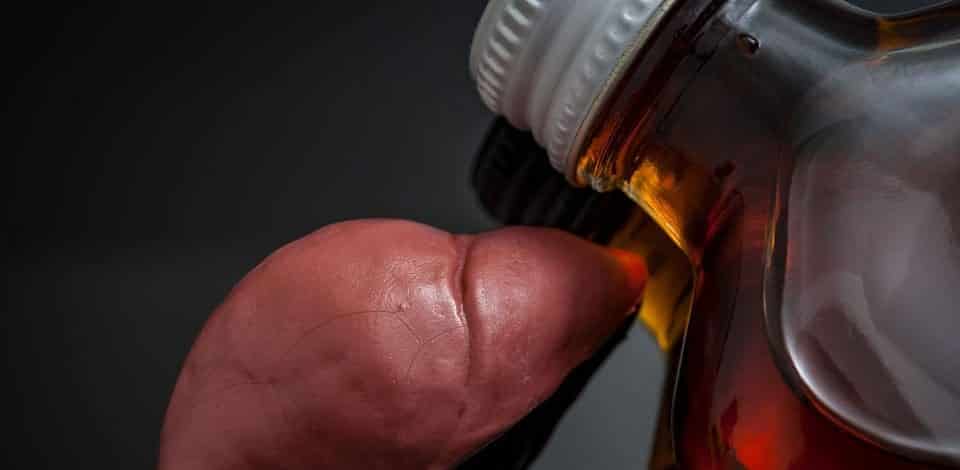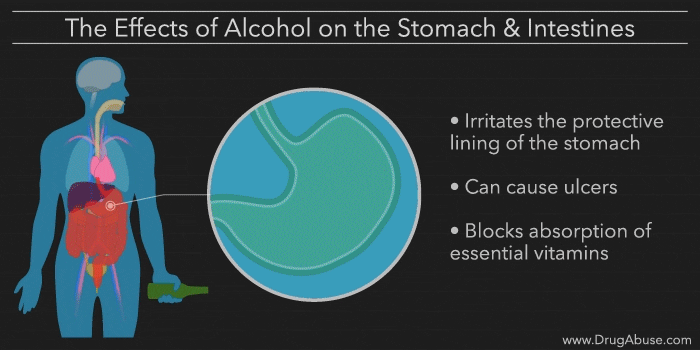Alcohol.
It’s that cool, bubbly champagne sitting crisply in your palm at brunch, seeming to leave everyone a bit giggly. Or, maybe it’s the fine spirit of sophistication you’re sipping by the fireplace, shooting you into a time of wines older than your parents.
Unfortunately, to many people, alcohol isn’t a breath of fresh air. Instead, even for moderate drinkers, alcohol is slow physical destruction.
Forget about brunch with your friends and those splotchy nights out slamming shots at the bar. For many people, drinking in excess can ruin their physical and mental health. More narrowly, alcohol can cause your immune system to deteriorate over time. And, yes, even moderate drinking can disrupt your body’s biological balance.

Although millions of Americans consume 10-11 drinks per week, on average, many people don’t understand the extent to which it harms your body. Binge drinking, especially, can take a toll on your physical and mental health in the long run. Some people feel the effects of alcohol use immediately, while others may feel it over time.
Alcohol acts upon the body’s biology in multiple ways. Here, you’ll discover some of the mechanisms that impair drinkers’ immune systems after sustained periods of drinking.
What Is Alcoholism?
First and foremost, what’s it mean to be an alcoholic, anyway? And do you need to have a drinking “problem” to experience the adverse effects of alcohol on your immune system?
According to Mayo Clinic, addiction experts actually use the term “alcoholism” to describe just one level of alcohol use disorder (yes, there is a spectrum). But for the sake of simplicity, we’ll refer to all levels of alcohol problems as “alcohol use disorders.”

An alcohol use disorder generally consists of some of the following signs:
- An inability to stop drinking, despite attempts
- Spending mental energy on drinking, planning to get the next drink, etc.
- Continuing to drink even if it results in massive consequences, like troubles with the law, school, or family matters
- Consuming more than one drink a day for women, and two drinks per day for men
Of course, these aren’t the only signs that someone is suffering from an alcohol use disorder. Sometimes there are finer, more subtle signs that someone is suffering from AUD, like how they continuously monitor the amount of liquor being poured into everyone’s glasses at the party. Or, maybe they’ve got a fear of running out of alcohol (and get irritable when the liquor is gone).
Many people who are physically addicted to alcohol also experience physical withdrawal symptoms, like sweating, anxiety, shaking, and even seizures. However, someone doesn’t need to classify as having an alcohol use disorder for their body to reap the consequences of drinking.
Even if you don’t have an alcohol use disorder, or are a light-to-moderate drinker, alcohol can still affect your body’s ability to fight off infections and viruses.
It Starts In The Gut
Generally, when someone begins drinking, the first effects imposed on the body start in the gut and other vital parts of the digestive system. Alcohol tends to pass through the lining of the stomach and small intestine, disrupting the balance of good flora in the gut. Alcohol, especially when used in excess, also weakens the lining of the stomach, allowing dangerous microorganisms to enter the flesh.
According to an article by Bimmuno, a supplement that supports the “good” bacteria in the gut, on alcohol’s effects of the gut, alcohol causes “an overgrowth of potentially harmful bacteria and a reduction in beneficial bacteria. This may cause inflammation of the gut and the tight junctions in the intestine become leaky, allowing toxins to enter the bloodstream and exacerbating the effects.”

The author of the article continues, claiming, “The gut bacteria play an important role in the immune system, help with the absorption of critical nutrients and help to maintain gut barrier function. When alcohol disrupts the flora in the gut, the resultant imbalance can give rise to health problems.” Besides this, alcohol can also cause ulcers.
What Alcohol Does To Your Brain
Alcohol tends to have a variety of effects on the brain. When someone drinks, they immediately feel a rush of euphoria and pleasure.
However, once the positive effects of alcohol wear off, it can result in some not-so-fun side effects. It can even cause depression and anxiety and worsen pre-existing mental illnesses.
Depression damages the immune system, according to Dispatch Health. In their article on the correlation between depression and suppressed immune function, depression is associated with autoimmune diseases, heart disease, and other diseases connected to prolonged stress.
Although not directly correlated, the stress of mental illnesses that are provoked by excessive alcohol use can contribute to a low-functioning immune system.
Drinking Leads To Inflammation
One part of alcohol’s mechanisms to weaken the immune system include its correlation with inflammation. Inflammation refers to a natural response from the body’s immune system when a foreign invader enters, whether that’s a cold, virus, or – yes – alcoholic beverages and other substances.
As mentioned above, alcohol disrupts the “good” and “bad” bacteria in your gut. This leads to inflammation in the stomach and small intestines as well as the liver, pancreas, and other vital organs. In the long run, experts believe inflammation is at the core of many chronic and deadly illnesses.
Alcohol disturbs the lymph system, too, and interferes with the body’s lymphoid tissues. As you might know, the lymph system is responsible for protecting the body from disease and ridding your body of any toxins. According to Live Science, the lymph system works by carrying white blood cells throughout the body to fight any toxic substances (like alcohol).
One study conducted on mice concluded that alcohol found that alcohol killed lymphoid cells. Evidently, alcohol also “increased the number of Salmonella organisms in the intestines, liver, and spleen” in the mice.
In riahealth.com’s article, Does Alcohol Cause Inflammation? Drinking And The Risk Of Chronic Illness, the author describes alcohol’s consequences on the body, explaining that it “inhibits the body’s immune response by suppressing key molecules and cells, and impairing the functions and interactions of key organs,”
Alcohol Distracts Your Body
Goodbye, healthy communication!
When you drink, your body’s primary focus is on processing the alcohol (which, by the way, is a hefty task). Unfortunately, this means that it doesn’t have the energy or resources to focus on fighting anything else, like illnesses. So, if you’re already sick, it’s possible your body could have worse trouble fighting the illness, or you could suffer for longer.
Together, all of these consequences of drinking suppress tend to impede the functions and health of the immune system. One study by the journal of Alcohol Research sums it up well, stating that the immune disruptions caused by alcohol “can impair the body’s ability to defend against infection, contribute to organ damage associated with alcohol consumption, and impede recovery from tissue injury.”
Long-Term Consequences Of Alcohol Abuse On The Body
Consistent, extensive drinking eventually leads to several diseases.
Long term heavy drinking can lead to heart disease, liver disease, and even cancer.
Alcohol may also cause a variety of illnesses, including:
- Cirrhosis of the liver
- Leaky bowel syndrome
- Gastrointestinal cancer
- Pneumonia
How You Can Protect Yourself
The best way to protect your immunity from alcohol is, of course, to refrain from drinking alcohol. However, if you drink, it might be best to start drinking less or drink alcoholic beverages that contain less alcohol, such as champagne or wine. On the contrary, steer clear of drinks with high alcohol concentration, like vodka, gin, and whiskey.
Finding Inpatient Treatment For Alcoholism
Many inpatient treatment centers exist for the rehabilitation of addicts and alcoholics if you believe that you or a loved one drinks excessively.
For example, at Hotel California by the Sea, we offer multiple programs for alcoholics who are suffering, from inpatient drug addiction treatment programs to flexible outpatient treatment.
Alcohol sales are on the rise. If you’ve been drinking to excess lately, you might want to think twice. Moderate alcohol consumption, as well as excessive drinking, can tamper with your immunity.
Call us today if you or a loved one is struggling with an alcohol use disorder and are interested in getting sober. You never know – it might just boost your immunity!
